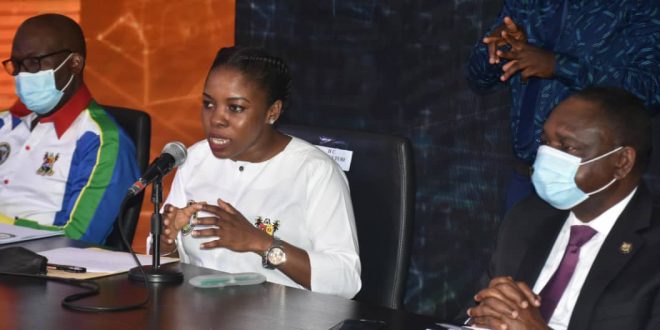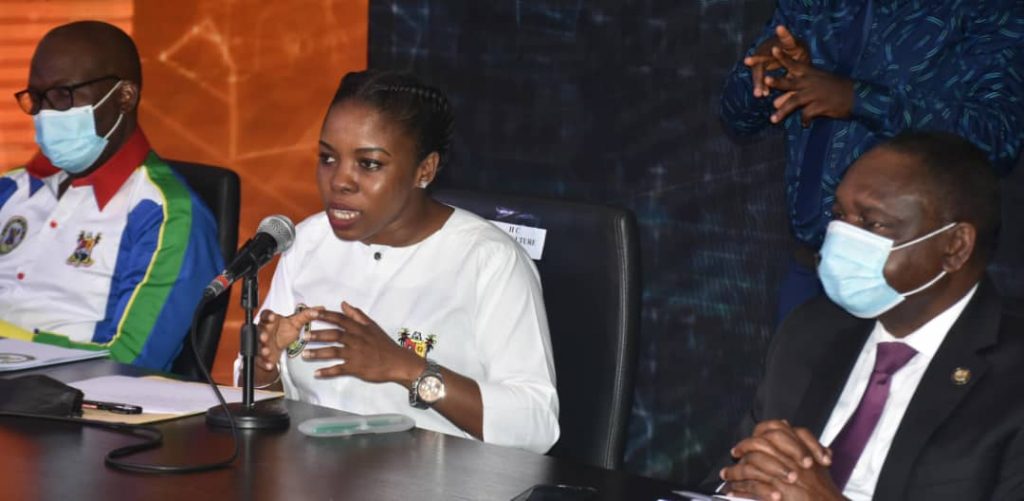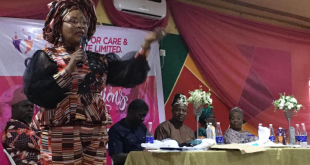
Lagos State Government yesterday said that its expenditure on the ongoing Imota Rice Mill, in Imota area of the state has hit N20 billion, saying the project would ensure a steady supply of about 2.4 million freshly processed 50kg bags of rice per annum when completed.
Speaking Commissioner during a press briefing commemorating the second year in the office of the administration of the Sanwo-Olu’s administration, the state’s Commissioner for Agriculture, Bisola Olusanya that the multi-billion Naira mill is a 32 Metric-Ton-Per-Hour Rice Mill and will be the third largest in the world on completion.
In addition to the steady supply of about 2.4 million freshly processed 50kg bags of rice per annum, she added that over 250,000 jobs would be created in both the upstream and downstream sectors of the Rice Value Chain.
Olusanya explained that the initial budget for the Rice Mill was N25 billion, but that with the rise in exchange rate, the figure has gone up. “So far, since its inception, about N20 billion has been spent on the Imota Rice Mill. The mill is the first of its kind in Nigeria, it is on a class of its own. It is the third largest mill in the world,” she said.
Olusanya said Lagos was putting everything in place because it wanted to have the best mill in the world, adding that on completion, the state government would not be getting processed rice from Kebbi, but would rather get paddy rice from the state to be processed at the Imota Rice Mill.
Harping on other interventions in the agricultural sector, she said the state government has trained no fewer than 12,574 people and empowered 19,207 youths and women in key agricultural value chains such as fisheries, poultry, rice and horticulture in two years.
Olusanya explained that the training was informed by the need to encourage more youth and women to participate in agriculture as well as to curb the problem of women and youth unemployment.
According to her, if the State was to succeed in her goal of attaining food security and self sufficiency status of 40% by year 2023, the need to train more youths who would readily take over from the aging farming population cannot be over emphasized.
“The administration of Mr. Babajide Sanwo-Olu is overtly committed to growing the State’s agricultural sector and ensuring that the state is less dependent on other states for the production of food. As a result of this, the State has continued with the empowerment, training and capacity development of the youth and women especially in selected key value chains such as fisheries, poultry, rice and horticulture.
“Several initiatives have been implemented where no fewer than 12,574 women and youth have been trained in the various agricultural value chains especially in fisheries, poultry, rice and horticulture. These are the areas where the State is considered to have some advantage.
“One of such initiatives is the introduction of the Eko Schools’ Agric Comic and Agric App. It is believed that this will stir up the interest of youths and teenagers in the agriculture sector,” the Commissioner averred.
She stressed that 19,207 youths and women were also empowered across all agricultural value chains with input and productive assets throbugh one of the many empowerment programmes such as the annual Agricultural Value Chain Empowerment Programme.
 The Story Your path to the story
The Story Your path to the story














